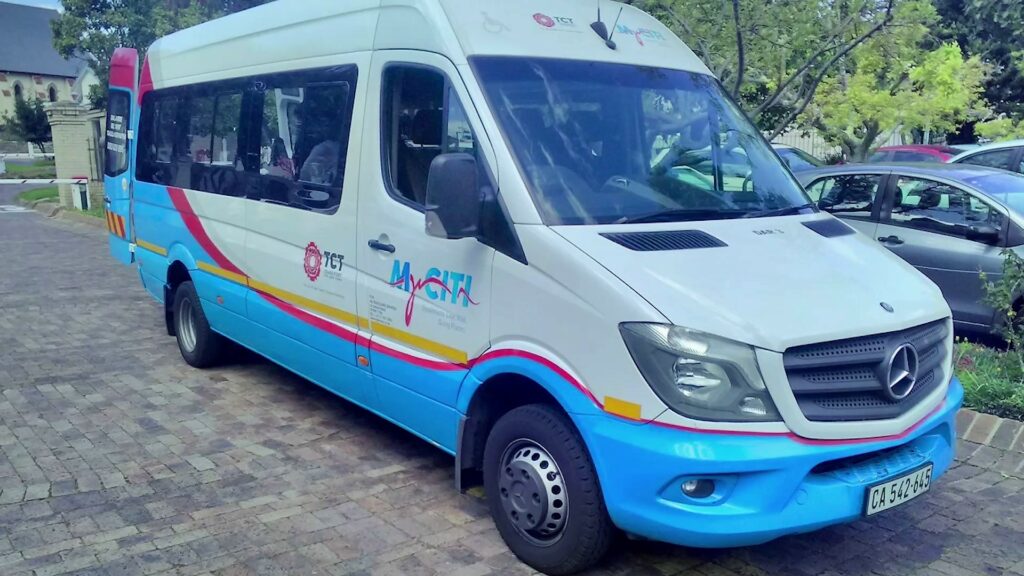By Nakedi Ngaka – article published Jan 7, 2022 (Weekend Argus)
Cape Town – The City has invested R17 million in new vehicles for the Dial-a-Ride (DAR) service for commuters with special needs. The new fleet consists of 13 vehicles and will be fully operational by mid-January 2022.
Apart from the specialised equipment to lift wheelchair users into the vehicle, the buses are also fitted with cameras and tracking devices so that the vehicles can be located at any time.
Mayco Member for Urban Mobility Councillor Rob Quintas said: ‘’This investment confirms the City’s commitment to ensuring that we improve access to opportunities for those who need it most. Many people who are in wheelchairs, or those with impaired eyesight, cannot get to where they need to be and rely on the DAR service for assistance.
‘’The DAR service will continue in its current form until 30 September 2023 when the City’s contract with the DAR operator, HG Travelling Services, comes to an end,’’ he said.

HG Travelling Services is a transport services provider specialising in passenger transport.
HG Travel General Manager Colleen Daniels said the transport vehicles would allow persons with special needs to be included in economic and other activities.
‘’We are hoping to see a more integrated approach to public transport, allowing persons with special needs to be included in economic and other activities. The CPT has set itself apart in recognising the need for specialised transport services for persons with special needs. Already a larger proportion of the persons with special needs are able to reliably be transported to work and back allowing them to participate economically,’’ said Daniels.
All-in-all, the fleet can accommodate 64 seated passengers with special needs and 56 passengers in wheelchairs per trip.
Western Cape Network on Disability (WCND) said that despite all that, there is still much work that needs to be done as the majority of public transport remains inaccessible to the majority of persons with disabilities.
Provincial Coordinator for WCND, Natalie Johnson, said: ‘’Without accessible transport, people with disabilities are unable to access training opportunities, work opportunities, health care services, social development services or even socialise within their communities. People with disabilities have the right to be able to access public transport without having to plan days, sometimes weeks, in advance just as every other citizen in the city, province and country do.’’
The DAR service currently has 319 regular users, and 2 300 eligible users who are transported on an ad-hoc basis.
Link to original Weekend Argus article (click here): :https://bit.ly/3qWnAA4